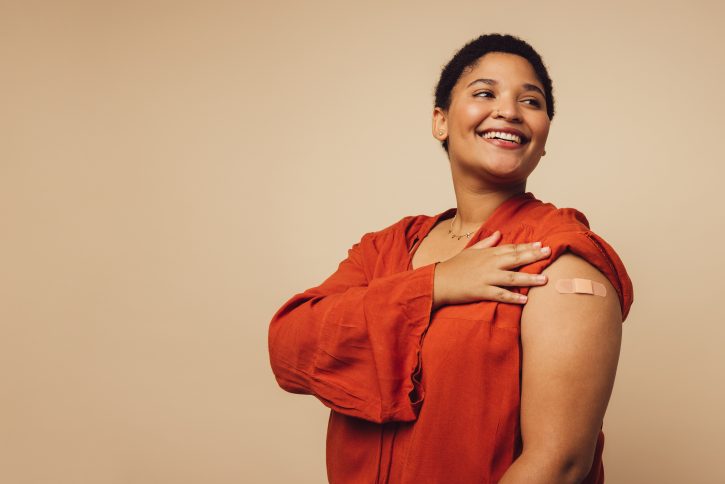
Updated Jan. 25, 2022
It’s hard to believe the United States began coronavirus vaccination efforts nearly a year ago: We’ve come a long way since those uncertain days of low supply and limited vaccine availability in December 2020.
These days, several COVID-19 vaccines are conveniently accessible at local pharmacies, the FDA has started the process of granting full approval for available vaccine options, and most importantly, data shows vaccination is a safe and effective tool against severe illness and death associated with COVID-19. As we approach the close of 2021, however, the discussion of booster vaccines and additional doses has taken a front seat. Here’s what you should know.
What is a booster vaccine?
A booster vaccine is given after you have already been immunized and formed a healthy immune response to your initial series or dose. These repeated vaccines are used to help your body “remember” how to best fight certain infections.
Many common vaccines require boosters, including chicken pox and pneumonia vaccines. The recommended interval between boosters varies with each vaccine and is often determined by several factors, such as how long immunity lasts and whether or not the virus that causes the infection has mutated or changed.
Does the need for a booster mean the vaccine isn’t working?
Not necessarily. The COVID-19 vaccine remains largely effective at preventing serious illness, hospitalization and death – even against the Delta variant. As infections spread, however, health experts have noticed a decrease in effectiveness against breakthrough infections with mild to moderate symptoms. This “waning immunity” is a common sign that it is time to “remind” our bodies how to fight the virus.
We may not be able to erase the existence of the novel coronavirus, but we can turn it into a less threatening illness through vaccination and lasting immunity.
When will I need a COVID-19 booster vaccine?
Currently, health experts are evaluating studies to identify timelines for booster vaccines as well as who needs to receive them.
The FDA recently approved/authorized booster vaccinations for all COVID-19 vaccinations and everyone ages 18 and older can get a booster shot
These boosters must be given at least five months after the initial Pfizer or Moderna series.
It is recommended that all adults who received the Johnson & Johnson’s/Jannsen vaccine should receive a booster at least two-months following initial vaccination.
Stay up-to-date on vaccine booster guidance here.
Does my booster shot have to be the same as my first?
Your booster vaccine does not have to match your initial dose or series. This mix-and-match approach applies only to booster vaccines.
If you are pursuing initial vaccination using Pfizer or Moderna, your initial series (first and second doses) should be the same.
What’s the difference between a booster vaccine and an additional dose?
Booster vaccines are given to healthy individuals who built an appropriate immune response to their first series or dose of the vaccine. Additional doses are intended for individuals with weakened immune systems who may not have built adequate immune protection with the first series or dose alone.
Currently, the CDC recommends individuals with suppressed immune systems receive an additional, or third dose, of the vaccine at least 28 days after their second Moderna or Pfizer-BioNTech vaccine.